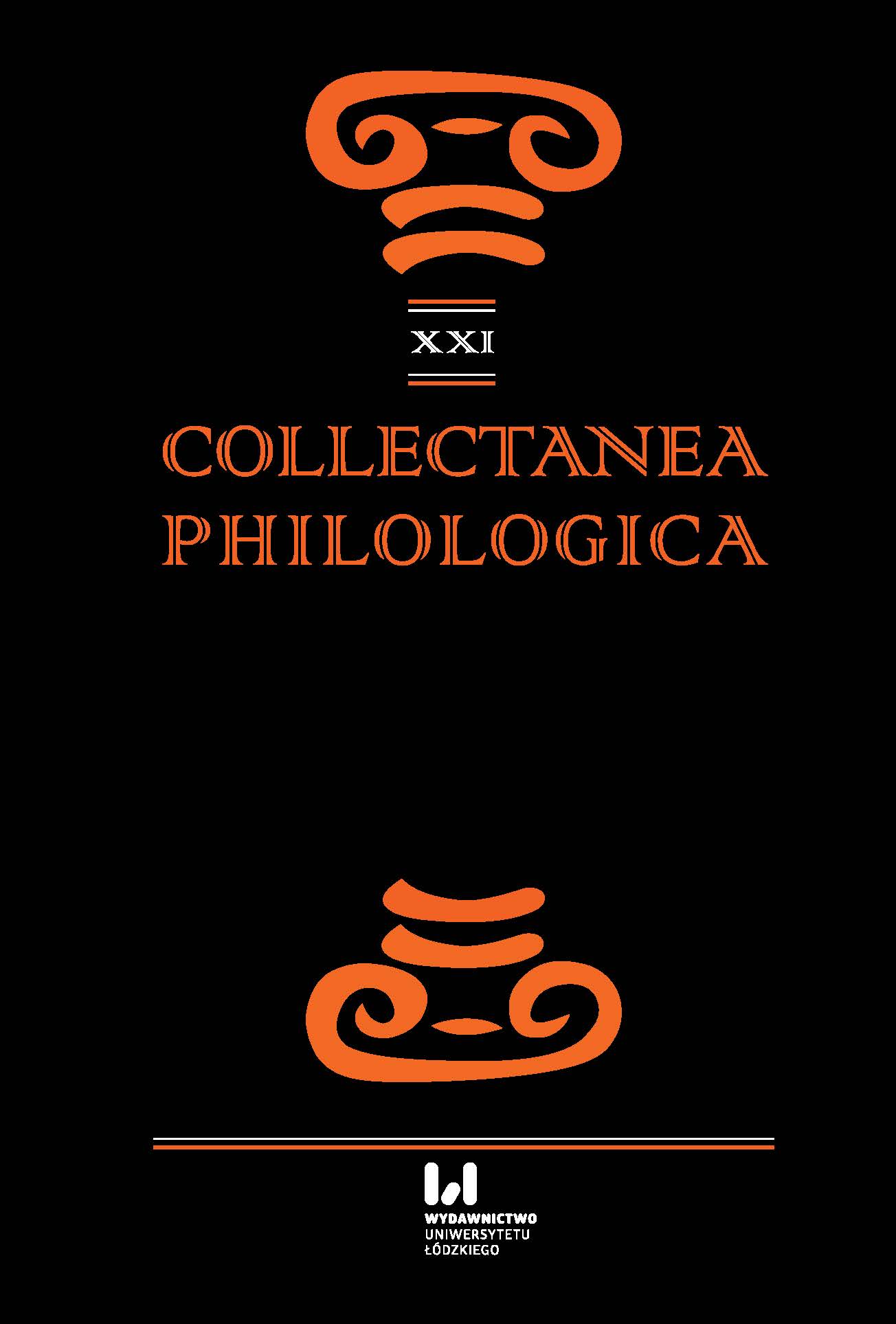The Topos of the Old and the Youth in the Drama Pescatori by Raffaele Viviani in the Context of the World of Values of Ancient Culture
DOI:
https://doi.org/10.18778/1733-0319.21.09Keywords:
Neapolitan drama, Viviani, Pescatori, ancient culture, toposAbstract
The subject of reflection in this article are antique topoi, whose transmission and reception can be observed in contemporary Italian drama. This topic is discussed on the example of RaffaeleViviani’s play entitled Pescatori (Fishermen), in which you can distinguish the presence of two topoi: a young man and an old man. Moreover, the aim of the article is to look at these topoi in the context of the world of the value of ancient culture, the echo of which also seems to resonate in the song. Taking into account, however, that the issue of connections between the dramaturgy of the Neapolitan writer and the specific elements of the Greek tragedy is an extremely broad problem, this study is merely a delineation of this subject and an indication for further directions of research.
References
Abramowska, J., (1982). „Topos i niektóre miejsca wspólne badań literackich”. Pamiętnik literacki 73/1/2, 3–23.
Google Scholar
Curtius, E.R., (2009). Literatura europejska i łacińskie średniowiecze. Kraków: TAiWPN UNIVERSITAS.
Google Scholar
Czerwińska, J., (2005). „Hiketeia (akt błagalny) – bezsilność czy przemoc?”. Sprawozdania z Czynności i Posiedzeń Naukowych ŁTN, 145–159.
Google Scholar
Czerwińska, J., (2009) „Thesmoi – starożytny „dekalog” w służbie greckiej paideia. Religijny czy psychologiczny aspekt winy ikary” (Thesmoi – the Ancient “Decalogue” in the Service of Greek Paideia. Religious or Psychological Aspect of Guilt and Punishment), [w:] Świat wartości w literaturze. Tom jubileuszowy dedykowany Profesor Oldze Główko. E. Sadzińska i A. Szymańska (red.). Łódź: Wydawnictwo Uniwersytetu Łódzkiego, 29–42.
Google Scholar
Euripides (1908). Antiope, [w:] Euripides Perditarum Tragoediarum Fragmenta. A. Nauck (red.) Lipsiae: In Aedibus B.G. Teubneri.
Google Scholar
Eurypides (1980). Tragedie. Przeł. J. Łanowski. Vol. 3. Warszawa: PIW.
Google Scholar
Fiorillo, D., (2003). Il dialetto vivianeo, [w:] Lezza A., Scialò P. (red.) Raffaele Viviani. Teatro poesia e musica, Napoli: CUEN, 105–110.
Google Scholar
Horacjusz, Kwintus Flakkus (1988). Sztuka poetycka, [w:] Dzieła wszystkie. T. 2. przekł. J. Sękowski, (red.) O. Jurewicz. Wrocław: Ossolineum.
Google Scholar
Perelman, Ch., Olbrechts-Tyteca, L., (1958). Traité de l’argumentation. Vol. 1. Paryż: Presses Universitaires de France.
Google Scholar
Pierzgalska, M., (2005). „Toposy ‘Młodość’ – ‘Starość’ w literaturze parenetycznej doby staropolskiej”. Acta Universitatis Lodziensis. Folia Letteraria Polonica 7.
Google Scholar
Roberts, A., (1999). „The origins of the term mentor”. History of Education Society Bulletin, [online] (64), 313–329. http://www.nickols.us/homers_mentor.pdf [accessed: 15.03.2018]
Google Scholar
Roisman, H.M,. (2005). „Nestor the Good Counsellor”. Classical Quarterly, [online] 55(1), 17–38. https://www.cambridge.org/core/journals/classical-quarterly/article/nestor-the-good-counsellor/E2BF5890E3CBFF536529748E4D430E10 [accessed: 15.03.2018]
Google Scholar
Sławińska, I., (1988). Odczytywanie dramatu. Warszawa: Państwowe Wydawnictwo Naukowe.
Google Scholar
Sterna. M., (2018). Elementi del dramma antico nell’opera „Pescatori” di Raffaele Viviani. Delineazione della questione, [w:] Domokos G. (red.) Verbum: Analecta Neolatina 2018/1-2, Budapeszt: Balassi Kiadó, 71–86.
Google Scholar
Viviani, R., (1989). Pescatori, [w:] G. Davico Bonino, A. Lezza & P. Scialò (red.): Teatro. Vol. 4. Napoli: Guida Editori, 273–329.
Google Scholar
Downloads
Published
How to Cite
Issue
Section
License

This work is licensed under a Creative Commons Attribution-NonCommercial-NoDerivatives 4.0 International License.












